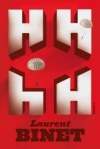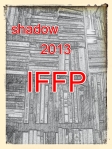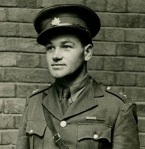
 What can I possibly write about this brilliant book that hasn’t been said already? HHhH by Laurent Binet has been reviewed both to great acclaim and to biting criticism all around the world and no wonder, it’s one of the most interesting books I’ve read in a long time.
What can I possibly write about this brilliant book that hasn’t been said already? HHhH by Laurent Binet has been reviewed both to great acclaim and to biting criticism all around the world and no wonder, it’s one of the most interesting books I’ve read in a long time.
Firstly, the title: it stands for ‘Himmler’s Hirn heiβt Heydrich’ which means ‘Himmler’s brain is called Heydrich’. It refers to Reinhard Heydrich – the most dangerous man in Hitler’s cabinet, and also known as ‘the Butcher of Prague’. He was the brains behind Himmler and was considered by some to be the likely successor to and possibly supplanter of Hitler. The reason his loathsome name is not as well-known as others in that loathsome regime is because he was killed, in 1942, in broad daylight in the city streets of Prague, by Czechoslovak paratroopers who had fled to Britain and were recruited by the Secret Service to kill him. These two brave men – the Czech Jozef Gabčík and Jan Kubiš the Slovak – did not survive the ensuing hunt for the culprits …
The fascinating aspect of this novel is that the reader knows the plot from the outset. The blurb on the dust jacket explains exactly what’s going to happen yet the tension is most skilfully maintained to the very last pages. This is achieved by the author’s commentary on his own writing – which some critics have found absurd, bizarre, self-indulgent or irritating – but I did not. As the author wrestles with how to tell his story when so much more is known about the villain than there is about the heroes, when he struggles with the need for historical accuracy when not all facts can be known, when he gets sidetracked by the books and films he’s seen on this and similar themes, he is alerting his readers to the problem of writing about the Nazis in the 21st century. At the same time, he builds a picture of an invincible enemy who’s an impossible target, and that puts the courage of these men front and centre. IMO it’s powerfully done, but it’s more than that. The truth is that there are some people who think that there’s nothing more to be learned about the Holocaust and Nazi Germany: they would like books about it to fade away so that we can forget all about it or not be upset about it. Time to move on, they say, as if there were no one still alive who suffered and as if forgiving and forgetting is a moral compulsion now that it’s all ‘just’ history. For these people this amazing story would be doomed to failure whether retold as an historical novel, as a straightforward memoir or work of history, or yet another film about the Nazis. Binet confronts this issue head on as he deconstructs the historical novel in his own unique way.
Without Binet’s postmodern treatment of his material, the names of Jozef Gabčík and Jan Kubiš would continue to be forgotten. The author himself says it best on page 178-9. The underlining is mine:
I’m fighting a losing battle. I can’t tell this story the way it should be told. This whole hotchpotch of characters, events, dates and the infinite branching of cause and effect – and these people, these real people who actually existed. I’m barely able to mention a tiny fragment of their lives, their actions, their thoughts. I keep banging my head against the wall of history. And I look up and see, growing all over it – ever higher and denser, like a creeping ivy – the unmappable pattern of causality.
I examine a map of Prague, marking the locations of the families who helped and sheltered the parachutists. Almost all of them paid with their lives – men, women and children. The Svatoš family, a few feet from the Charles Bridge; the Ogoun family, near the castle; the Novak, Moravec, Zelenka and Fafek families, all farther east. Each member of each of these families would deserve his or her own book – an account of their involvement with the Resistance until the tragic dénouement of Mauthausen. How many forgotten heroes sleep in history’s great cemetery? Thousands, millions of Fafeks and Moravecs, or Novaks and Zelenkas…
The dead are dead, and it makes no difference to them whether we pay homage to their deeds. But for us, the living, it does mean something. Memory is of no use to the remembered, only to those who remember. We build ourselves with memory and console ourselves with memory.
The Svatošes, the Novaks, the Zelenkas – not to mention all those whose names or existence I’m unaware of – will return to their oblivion. But in the end a name is just a name. I think of them all. I want to tell them. And if no one hears me, that doesn’t matter. Not to them, and not to me. One day, perhaps, someone in need of solace will write the story of the Novaks and the Svatošes, of the Zelenaks and the Fafeks.
These ruminations had a powerful effect on me. The enormity of the war crimes committed by the Germans is so overwhelming that sometimes the sheer numbers are self-defeating. We simply cannot comprehend them. But Binet’s admission that he is defeated by the numbers of dead heroes and cannot include them all, is more than sobering. He makes us realise that even the choice of which names to include, which names to omit, falsifies the very history he is trying to tell.
And yet, for all these contradictions that he is at such pains to convey, his testimony – whatever its flaws – breathes life into these names, just as he is also able to metaphorically resurrect the little village of Lidice which was utterly destroyed in a reprisal for the Heydrich’s assassination. Heydrich would certainly have been convicted in any war crimes tribunal for the appalling crimes against humanity that he committed – not only as the architect of the so-called Final Solution, but also as the man responsible for the indiscriminate killing of dissidents, and anyone else who got in his way. In HHhH Binet shows us that Jozef Gabčík and Jan Kubiš, while knowing what their own fate would be, showed the world that evil is not indestructible and were an inspiration to resistance fighters everywhere.
I read HHhH as a member of the Shadow Jury for the Independent Foreign Fiction Prize. Stu at Winston’s Dad has reviewed it too, and you may also be interested to read what Violet has to say about how the novel deconstructs historical fiction at Still Life With Books. (Interestingly, we have independently of each other quoted the same passage!)
To see reviews of other titles on the IFFP Longlist, click the Shadow Jury logo (designed by Stu from Winston’s Dad).
Author: Laurent Binet
Title: HHhH
Translated from the French by Sam Taylor
Publisher: Farrer, Strauss & Giraux, (hardback) 2012 (first published 2009)
ISBN: 9780374169916
Source: Kingston Library
Availability
Fishpond: HHhH (Vintage paperback)




Interesting times ahead for the panel – especially after my review today…
http://tonysreadinglist.blogspot.com.au/2013/03/hhhh-by-laurent-binet-review-iffp-2013.html
LikeLike
By: Tony on March 26, 2013
at 9:44 pm
Oh this is wonderful, Lisa! I too reviewed HHhH (no quotes though).
https://beckylindroos.wordpress.com/0313-2/hhhh/
It’s more than likely to make my 10 best fictions of the year –
LikeLike
By: beckylindroos on March 26, 2013
at 11:35 pm
That’s an excellent review, Becky, especially the way you unpack the PoMO elements.
LikeLike
By: Lisa Hill on March 27, 2013
at 5:36 pm
This book has been getting lots in the US and I have been mildly interested but I think you just clenched it for me. Onto my TBR list it goes!
LikeLike
By: Stefanie on March 27, 2013
at 12:22 am
“The blurb on the dust jacket explains exactly what’s going to happen yet the tension is most skilfully maintained to the very last pages.” As a reader who normally likes to go into books without reading the blurb, would you say the blurb is actually necessary for understanding the story? Sounds like it sets the stage in this stage more than it actually describes what’s going to happen within the book…
LikeLike
By: Biblibio on March 27, 2013
at 4:45 am
I read it with a reading group and got it on Kindle so I didn’t read the blurb. It took me to about page 50 (maybe a bit further) to appreciate what Binet was doing. It might have been quicker had I read the blurb, but I don’t think it’s necessary.
LikeLike
By: beckylindroos on March 27, 2013
at 5:23 am
I think it would be even more exciting if you didn’t know the story, but what struck me was that even though I did (because I had the library copy with the blurb – and page numbers BTW) I still found it unputdownable. That takes real skill, I think.
LikeLike
By: Lisa Hill on March 27, 2013
at 5:35 pm
Most Kindle-books have page numbers now. Life is good. (g)
LikeLike
By: beckylindroos on March 27, 2013
at 10:23 pm
Yes, and that is an improvement, especially if like me you want to quote from the book. But my comment was in response to criticisms I’ve read in a couple of reviews where apparently in the original print edition HHhH didn’t have any page numbers.
LikeLike
By: Lisa Hill on March 28, 2013
at 6:23 pm
My oh my, this sounds wonderful. I had read something about Binet’s unusual way of telling this story and thought perhaps it wasn’t for me. But your review and the excerpt you’ve chosen to demonstrate the style have combined to change my mind. Thanks for a terrific review Lisa.
LikeLike
By: karenlee thompson on March 27, 2013
at 6:57 am
This is definitely of interest due to the disparity between opinions
LikeLike
By: parrish on March 27, 2013
at 4:32 pm
Yes indeed, it seems to be love it or hate it, doesn’t it?
LikeLike
By: Lisa Hill on March 27, 2013
at 5:29 pm
This was my favourite book last year so I’m pleased to see that you liked it. I loved its originality, its thought provoking nature and the way it maintained tension all the way through. I hope you and your shadow jury (and the real one!) put this through as the winner.
LikeLike
By: Jackie (Farm Lane Books) on March 27, 2013
at 9:04 pm
Hello Jackie:)
Have you read any of the others as well? I must admit that at the moment it is a tussle between this one and Dublinesque, but then I’ve only read a few of them so far. I’ve started A Death in the Family, but so far (even though it’s a novel) it feels rather like a sad memoir to me, and I’m not veyr fond of sad memoirs. Maybe it will improve, but it’s never a good sign when I pick up the next book from the pile ‘for a quick look’ and then keep reading it instead of finishing the other one…
LikeLike
By: Lisa Hill on March 28, 2013
at 6:21 pm
I see I am going like talk on this between us ,well I loved it but in the year roughly since I ve read it I feel it maybe deceived me a bit ,all the best stu
LikeLike
By: winstonsdad on March 28, 2013
at 3:15 am
[…] of 1984 was intrinsically interesting. He was also inspired by the novel HHhH by Laurent Binet (see my review) which fictionalised historic events (without being ‘historical fiction’ in the sense […]
LikeLike
By: Book launch: The Last Man in Europe by Dennis Glover, at the Bookshop at Queenscliff | ANZ LitLovers LitBlog on July 9, 2017
at 6:49 pm
[…] read this book. I had read a rather discouraging review and decided not to bother even though I had read HHhH and really liked it. And then someone among my blogging friends (who? I can’t remember!) reviewed it very […]
LikeLike
By: The 7th Function of Language, by Laurent Binet, translated by Sam Taylor #BookReview | ANZ LitLovers LitBlog on September 5, 2018
at 4:29 pm